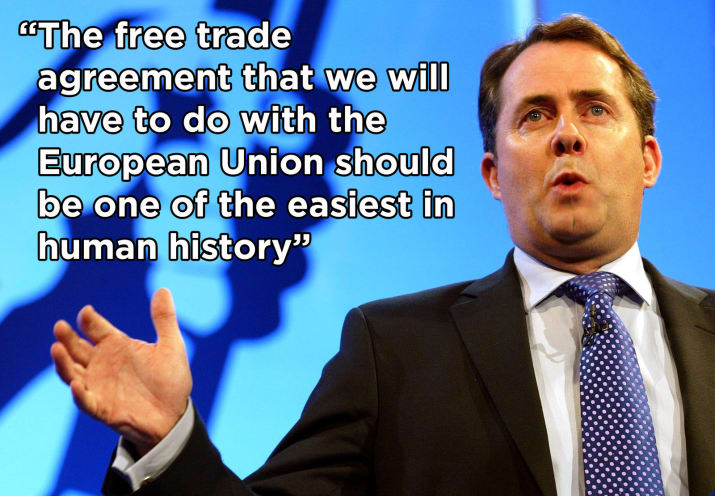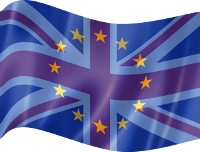Nick Kent - 01/05/2018
These 5 EU trade myths are Brexiter nonsense.

Theresa May’s Brexit cabinet committee meets tomorrow to decide what kind of customs relationship the UK should have with the EU after we leave. Here are five myths about EU trade that her ministers should bear in mind.
Myth 1: Being in the EU has stopped the UK from trading outside the EU
In which case why is Germany China’s largest trading partner? EU rules don’t prevent any member state from trading outside the EU. That’s how France can do more trade with the US than the UK does. What holds Britain back are domestic issues like our low productivity, our lack of investment in skills and the fact that we don’t make enough of what the world wants to buy. “Global Britain” is a slogan, not a policy.
Myth 2: The UK already trades on World Trade Organisation terms with most countries
Wrong. Most of our trade is with the EU or with the 64 third countries that have trade agreements with it. The UK trades with just 24 countries on the basis of WTO rules alone.
Myth 3: Lots of non-EU countries want to sign a trade agreement with us
Maybe, but on their terms. The UK could negotiate its own trade agreements outside the EU, but how good would the terms of those agreements be? Also, would the resulting additional trade (if any) make up for the trade we will lose on leaving the EU?
Australia and New Zealand want a post-Brexit trade agreement with us but they also they want us to drop EU rules that protect our farmers from unfair competition and consumers from unsafe food. And they want more visas for their citizens.
The US is also keen on a trade agreement with the UK – but on its (unattractive) terms. It’s not about whether you can get a trade agreement, it’s whether that agreement is worth having that matters. And UK government figures show that even if we signed trade agreements with all these Commonwealth countries and the US, our GDP would grow by just 0.7% a year compared to the 5% annually we would lose from leaving the single market.
Myth 4: Being in a customs union solves most of the UK’s trade problems
No, because while leaving the customs union could cost us £25 billion a year through the reintroduction of tariffs and customs checks, losing access for our services and the return of regulatory barriers are even greater problems. Staying in a customs union is desirable because it would help to protect UK jobs, but it isn’t sufficient.
Leaving the EU Single Market means we lose access for our highly profitable services exports as well as our goods exports to a market of 500 million people and will no longer share a common set of trading rules we helped to write. Losing those advantages is so serious that it would be better to be in the single market as well as a customs union – or, even better, to stay in the EU.
Myth 5: High EU tariffs keep out products from poor countries
The Brexiteers falsely claim that the EU hurts the poorest countries with high tariffs. The world’s 49 poorest countries can export tariff free to the EU as part of the “anything but arms” initiative. The truth is that the EU is the most passionate and committed supporter of the world’s poorest. It provides them with tariff free access for their goods and despite opposition from Leave campaigners, remains the world’s largest aid donor.
Credits
Nick Kent, InFacts
 ourEU.UK
ourEU.UK